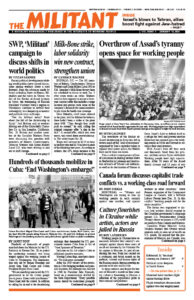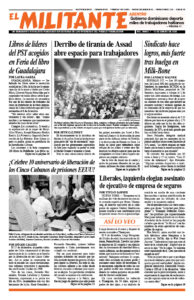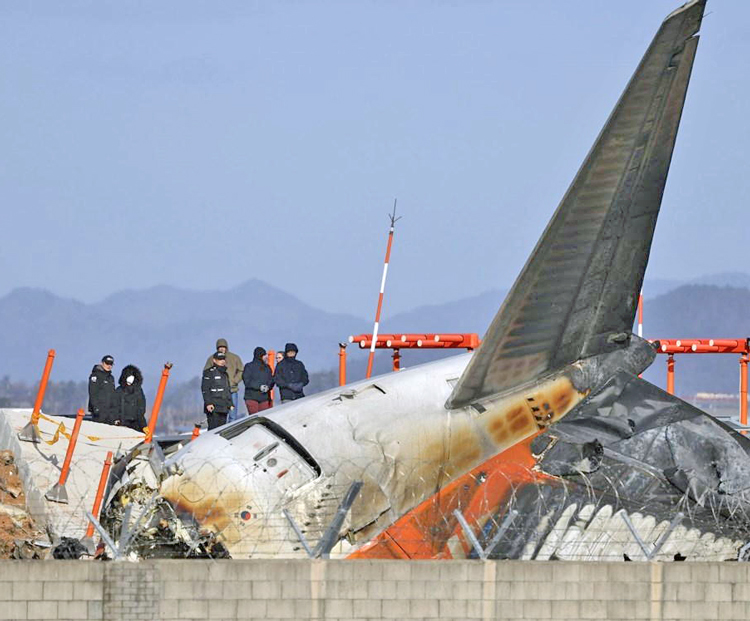In the deadliest air disaster on South Korean soil, a Jeju Air passenger jet crashed at Muan International Airport Dec. 29, killing all but two of the 181 people on board. This has added to the escalating political crisis facing the country’s capitalist rulers. Working people have taken to the streets in weeks of mass protests following an attempt by the unpopular People Power Party President Yoon Suk Yeol to impose martial law Dec. 3. Both he and the acting president who followed him have been impeached.
Yoon was elected in 2022 by the thinnest of margins, 0.8%. He claimed martial law was required because the opposition-dominated parliament was refusing to act on proposed legislation. The massive demonstrations, including union walkouts, reflect working people’s memory of earlier decades of military dictatorship. Their hard-won political rights are under attack.
Yoon was suspended from office and banned from leaving the country as South Korea’s divided rulers weigh a course forward. If he is convicted of leading a “rebellion,” he can face the death penalty or life imprisonment.
Washington relies on South Korea as a key ally to counter North Korea as well as the rise of Beijing. New acting President Choi Sang-mok hastened to assure the U.S. rulers that their alliance remained “ironclad.”
Still, when Yoon declared martial law, the U.S. and South Korean militaries cancelled scheduled military exercises and Defense Secretary Lloyd Austin deep-sixed a planned trip there. Washington has 28,500 troops stationed in South Korea.
In the airliner disaster, the Boeing 737-800 plane made an emergency landing after an apparent bird strike, but without flaps or landing gear deployed. It slid down the runway into a barrier at the end and burst into flames.
The government’s slowness to respond and disrespectful treatment of angry relatives have deepened the political crisis.


